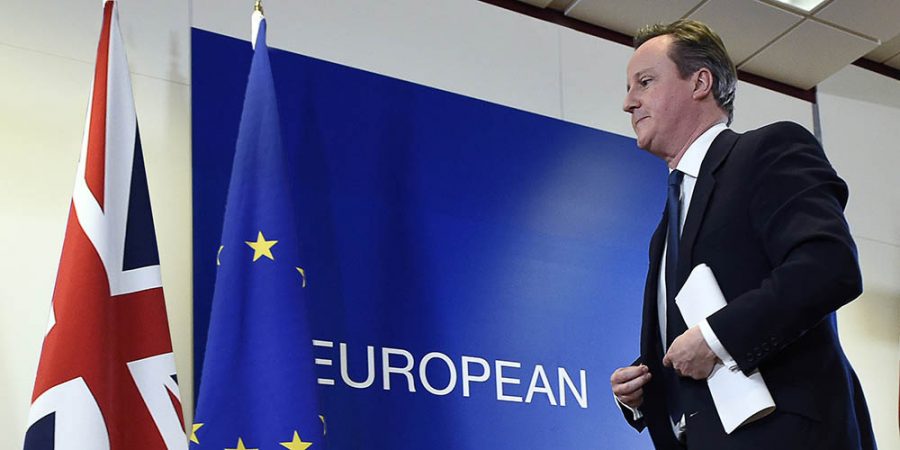Brexit: U.K. votes to leave, what’s next?
by Nick Mustoe, Chief Investment Officer, Invesco Perpetual
After months of anticipation, U.K. voters have decided – in an historic move – to leave the European Union (EU) some 43 years after joining its predecessor, the European Economic Community, in 1973. The U.K. government, institutions and wider business community now have the task of addressing a multitude of financial, economic, fiscal and political implications and consequences.
In our view, the decision to leave will likely increase existing market volatility in the immediate aftermath, driven by investor uncertainty over the potential consequences of the outcome, and may see investors moving further into defensive assets. This type of market volatility often leads to price adjustments that are indiscriminate, and can therefore present attractive buying opportunities for fundamental, long-term investors, such as ourselves.
Market consensus appears to be clear that, over the short term, the decision to forego EU membership will likely lead to weakening of sterling and impact U.K. economic growth. The extent of such an impact and how long it will last can only be speculated on at this time. The more immediate impact on the U.K. economy and growth will likely be determined by several domestic and global factors, from trade, productivity and capital investments (domestic and direct foreign) to the direction of central bank monetary policy.
Longer term, we believe the U.K. economy will not only be able to handle the decision to leave the EU, but continue to thrive, as we remain optimistic about the U.K.’s growth outlook. Having experienced some of the strongest growth among the G7 nations over the past four years, we believe the economy is well-positioned to handle what lies ahead.
For our part, we have been investing across global equity markets for more than 30 years. And whilst markets have changed, we have always remained true to our investment principles. This event is no different. In doing so, we remain focused on what is in the best long-term interests of our clients. It is our commitment to taking a long-term view that has been the key to the investment performance that we have generated over time.
To provide you with a full view from our team, I’ll turn it over to my colleagues Mark and Jeff to add additional commentary.
Mark Barnett, Head of U.K. Equities, Invesco Perpetual
In simple terms, the U.K.’s vote in favour of Brexit has cast us into uncharted waters with a level of uncertainty we have not experienced for a long time. In the coming weeks and months, there may be delays to consumer spending, companies’ recruitment and foreign direct investment as the nation and wider global economy digests the decision. In combination, these factors present substantial short-term headwinds to the U.K. economy.
Over the longer term, however, we believe the U.K. economy can cope with life after Brexit and we remain optimistic about the future outlook. We have a dynamic economy which has adapted to change before – and is now primed to adapt again to whatever change is thrown at us.
Sterling will be a key instrument to watch over the near term, as movements in currency will likely determine the extent of the wider market response. We expected the initial sentiment to be negative, along with a fall in markets, but the question is – by how much? We have seen quite a lot of weakness building already, so some of the negative sentiment has already been priced in. There will likely be a knee-jerk response, potentially followed by a rally in the market as people start to think more carefully about the wider implications of weakening sterling.
If there is a sharp fall in sterling, many U.K. companies – particularly international large caps with predominantly overseas earnings, which we are heavily invested in – could reap some tailwind benefits as currency translation feeds through into earnings.
More broadly, we believe the best businesses will be well equipped to deal with the challenges wrought by Brexit. U.K. companies have withstood the numerous and variant headwinds of the recent period – where discussion around U.S. interest-rate policy, the direction of the U.S. dollar and commodity prices have contributed to hostile market conditions.
Ultimately, we don’t manage money on a three-month view or a six-month view, but in the best long-term interests of our clients. We will be waiting to see some of the dust settle before we move portfolios one way or the other because at this stage it is difficult to accurately assess what some of the moving parts will look like as international trade and regulatory negotiations take shape.
We would urge investors to recognize that we will endeavour to make considered judgements on the basis of the facts as they emerge. We will not be making changes to the methodology we have used for many, many years to build our portfolios, nor departing from the processes we deploy to analyze, understand and respond to investment opportunities across U.K. equity markets.
Jeff Taylor, Head of European Equities, Invesco Perpetual
U.K. had its say and decided to leave the European Union. The focus will now shift to the intended transition period and the negotiations between the two parties (U.K. and EU), which will take some considerable time.
The real extent of the impact on the broader European economy and political environment is uncertain. Markets do not like uncertainty and so we expect market volatility on both sides of the Channel. In economic terms, we see less risk of lasting damage to the rest of Europe given that the eurozone recovery, driven by domestic demand, has shown itself well-positioned to withstand external risks as demonstrated in the last couple of years. Some damage to broader European growth cannot be excluded, but we would not anticipate that the whole continent will automatically slip into recession because of Brexit. The European Central Bank (ECB) and the key politicians in Europe (e.g., Chancellor Merkel and President Hollande) know the risks and will more than likely use policy to counteract near-term stress. What form that takes remains to be seen, but it is highly unlikely they will stand on the side-lines and watch the market panic.
On the political front, we think it is wrong to see Brexit as a trigger for the complete break-up of the EU. Near-term, we expect political noise as both France and Germany have general elections in 2017, and neither country can therefore afford to give the U.K. an easy ride. On the Continent, that some populist politicians express anti-EU views does not mean that a series of follow-on referenda is a given. It has been wrong historically to underestimate the commitment of European politicians/institutions to the EU project (e.g., during the sovereign debt crisis in 2012, Greece in 2015); all the periphery countries are still in the EU and playing by the rules, despite the rest of the world predicting they would have exited by now. Populist risk exists globally (not least in the U.S.) and is not a factor unique to Europe.
It is worth remembering that the Brexit vote has been well-flagged for some time, and whilst the end result is a negative surprise, flow data in the European markets pointed to significant nervousness already, ahead of the result.
Most of our portfolios are generally pro-cyclical in their positioning, so a slowdown of the broader economy does not obviously help our case short-term. This positioning reflects where we see the most interesting valuations at the current time. We will under all circumstances stick to our long-held investment philosophy based on bottom-up fundamental analysis and driven by valuation, the single most important long-term driver of investor returns in our view.
This post was originally published at Invesco Canada
Copyright © Invesco Perpetual














